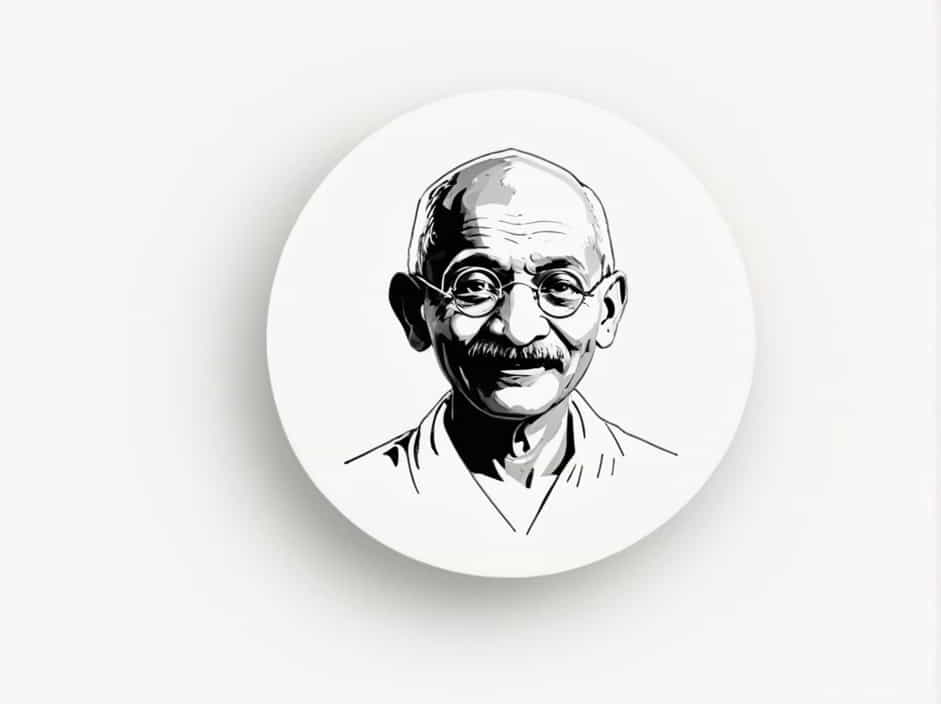Mahatma Gandhi, one of the greatest leaders in history, believed deeply in the power of education. For him, education was not just about literacy or acquiring degrees but about character building, moral values, and self-reliance. His teachings continue to inspire students, teachers, and societies across the world.
In this topic, we will explore some of Mahatma Gandhi’s most powerful quotes on education, their meanings, and how they can be applied in today’s world.
Why Mahatma Gandhi’s Views on Education Matter
Mahatma Gandhi’s thoughts on education emphasized holistic development. He believed that education should:
-
Develop character and instill ethical values.
-
Promote self-sufficiency and practical skills.
-
Encourage truth, peace, and non-violence.
-
Go beyond textbooks and focus on real-life learning.
His vision of education was not just about acquiring knowledge but about building a better society.
Famous Quotes by Mahatma Gandhi on Education and Their Meanings
1. “Live as if you were to die tomorrow. Learn as if you were to live forever.”
This quote highlights the importance of lifelong learning. Gandhi encourages people to make the most of every moment while continuously seeking knowledge. Learning should never stop, no matter how old we are.
2. “By education, I mean an all-round drawing out of the best in the child and man-body, mind, and spirit.”
For Gandhi, education was not just about memorizing facts. It should focus on physical, mental, and spiritual development. A truly educated person is one who is strong in body, sharp in mind, and pure in heart.
3. “The best way to find yourself is to lose yourself in the service of others.”
Education is not just for personal success; it should be used to help others and improve society. Gandhi believed that selfless service was the key to true wisdom.
4. “The function of education is to teach one to think intensively and to think critically.”
Critical thinking is an essential skill. Gandhi emphasized that education should not create followers but independent thinkers who can analyze, question, and make wise decisions.
5. “An education which does not cultivate the will-power is an education that leads nowhere.”
Education should strengthen a person’s determination and self-discipline. Knowledge alone is not enough; a person must have the willpower to apply it and make a difference.
Mahatma Gandhi’s Concept of ‘Nai Talim’ (Basic Education)
Gandhi introduced a unique concept of education called ‘Nai Talim’, which means ‘New Education’. It was based on:
-
Learning through work – Practical skills should be an essential part of education.
-
Character building – Education should develop honesty, kindness, and responsibility.
-
Self-reliance – Students should learn to be independent and contribute to society.
This model aimed to create self-sufficient individuals who could lead meaningful lives.
Gandhi’s Views on Moral and Value-Based Education
1. Education Should Promote Truth and Non-Violence
Gandhi believed that education should instill the values of truth (Satya) and non-violence (Ahimsa). He encouraged students to always stand by the truth and resolve conflicts peacefully.
2. Education Should Not Be Limited to Books
He often said that real education happens outside the classroom. Experience, observation, and interaction with society are just as important as academic learning.
3. Simplicity and Humility in Learning
According to Gandhi, education should not create arrogance or superiority. Instead, a truly educated person remains humble and open-minded.
How Gandhi’s Quotes on Education Are Relevant Today
1. Importance of Character in Education
Many educational systems focus only on exams and grades. However, Gandhi believed that character, ethics, and morality are just as important. Schools and colleges should prioritize values-based education.
2. Learning Should Be Practical
Gandhi’s concept of learning by doing is essential today. Students should gain hands-on experience rather than just memorizing theories. This approach can improve creativity, problem-solving, and real-world skills.
3. Lifelong Learning and Growth
In today’s fast-changing world, continuous learning is key to success. Gandhi’s philosophy encourages us to keep acquiring knowledge and improving ourselves.
4. Education for Social Change
Education should be used to address social issues, promote peace, and create a better world. Gandhi’s ideas remind us that knowledge should be used not just for personal gain but for the benefit of all.
Gandhi’s Influence on Modern Education Systems
Many of Gandhi’s principles have influenced modern education, including:
-
Holistic development – Schools now focus on both academics and character building.
-
Experiential learning – Hands-on projects and skill-based learning are becoming popular.
-
Moral education – Many institutions include ethics and values in their curriculum.
-
Social responsibility – Students are encouraged to participate in community service and sustainability initiatives.
More Inspirational Quotes by Gandhi on Education
-
“The real difficulty is that people have no idea what education truly is. We assess the value of education in the same way that we assess the value of land or of shares in the stock market. We want to provide only such education as would enable the student to earn more. We hardly give any thought to the improvement of character.”
-
“A man is but the product of his thoughts. What he thinks, he becomes.”
-
“True education must correspond to the surrounding circumstances or it is not a healthy growth.”
-
“The golden way is to be friends with the world and to regard the whole human family as one.”
These quotes emphasize that education should not be treated as a business but as a tool to create responsible, ethical, and intelligent individuals.
Mahatma Gandhi’s thoughts on education go far beyond academics. His philosophy teaches us that education should:
-
Build character and moral values.
-
Encourage critical thinking and independent decision-making.
-
Focus on practical skills and self-reliance.
-
Be used for the betterment of society.
His words continue to inspire educators, students, and leaders across the world. By following his principles, we can create a more meaningful, ethical, and impactful education system.
As Gandhi believed, education is not just about learning facts-it is about shaping individuals who can change the world.
